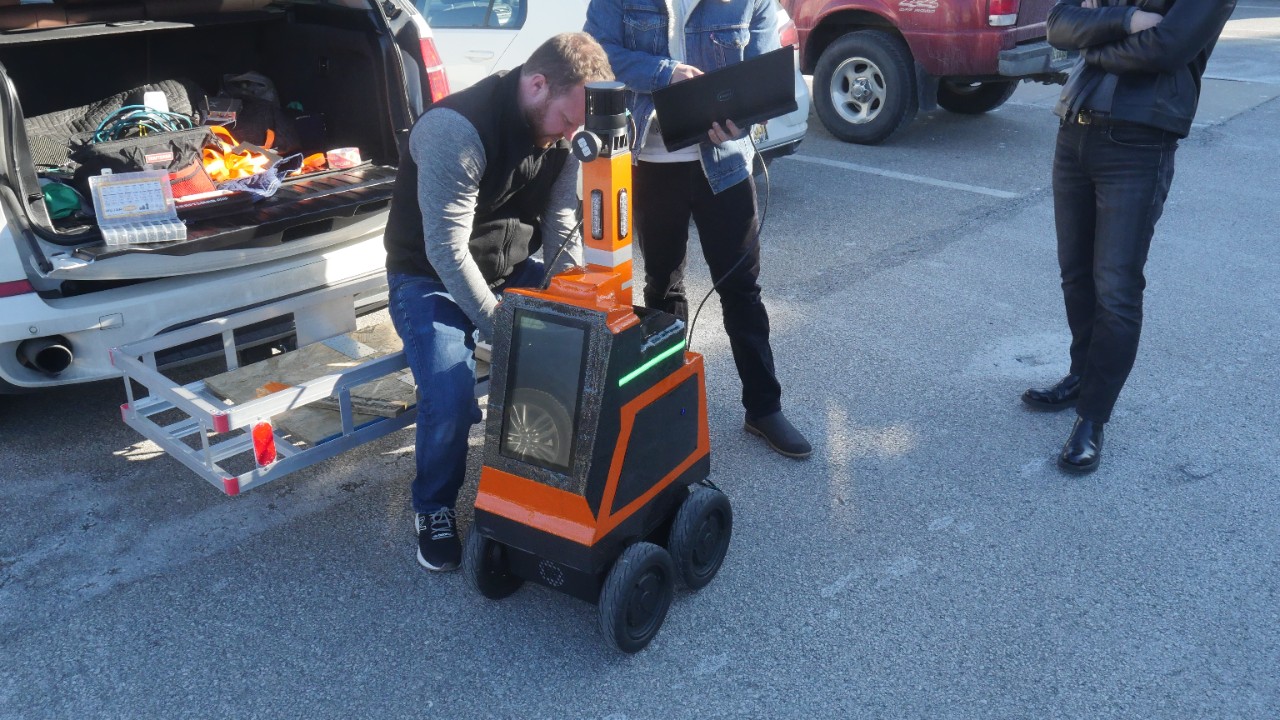Commercial aviation is a high-stakes, multi-billion-dollar industry where punctuality is paramount and cost efficiency is king.
Airlines face the daunting task of balancing on-time performance, operational costs and regulatory compliance, all while prioritizing the safety of passengers and meeting the stringent standards set by aviation authorities.
While aviation incidents such as crashes frequently make headlines, an article in the Wall Street Journal spotlighted the risks and safety hazards faced by the workforce beneath aircraft on the tarmac, which typically remains undisclosed to the public.
Local innovators Chris Kyoochul Lee, Jon Taylor and Huzefa Dossaji, offer a promising new startup solution to revolutionize aircraft ground handling process for enhanced safety.
They co-founded Airtrek Robotics, creating an autonomous robot that oversees ground crew tasks such as aircraft marshaling and foreign object debris (FOD) management. The technology operates within the aircraft safety envelope, ensuring no person or object is within the restricted perimeter during aircraft maneuvers.
"Airtrek Robotics aims to modernize outdated aircraft ground handling processes using autonomous technologies. This innovation utilizes advanced sensors and artificial intelligence to deliver an accurate, automated and cost-effective solution to enhance safety and efficiency of the operations," Lee said.

Airtrek co-founder Jon Taylor works on the robot outside the 1819 Innovation Hub. Photo/Greg Glevicky
Travelers often overlook the potential hazards of seemingly harmless objects on airport tarmacs, such as tools, luggage fragments, wildlife and debris. These items pose severe risks to aircraft, including tire damage, airframe punctures and engine issues. Moreover, when propelled by jet blast or rotor wash, FOD can cause injuries or fatalities among airport personnel.
The Federal Aviation Administration (FAA) estimates that damage from FOD costs the U.S. aviation industry $5.1 billion annually in lost revenue, with global costs reaching $13.9 billion annually.
Given the risky environment around aircraft, with engines running and constant motion, ground crews must always maintain acute situational awareness. Even the slightest oversight can lead to catastrophic consequences, resulting in severe injuries or loss of life. Aircraft marshalling, a crucial aspect of the ground handling process involving typically three personnel, is particularly susceptible to risks.
Last year, the FAA reported incidents in the marshalling area, including a fatal accident. This prompted a safety alert for operators, stressing the need for increased awareness and strict adherence to safety protocols during aircraft marshalling.
The technology of the Airtrek robot intends to play a pivotal role in marshalling procedures. Equipped with multiple sensors, these robots will serve as additional "eyes on the ground," augmenting and replacing the air marshalling process in some instances, further ensuring safety standards are met and exceeded.






